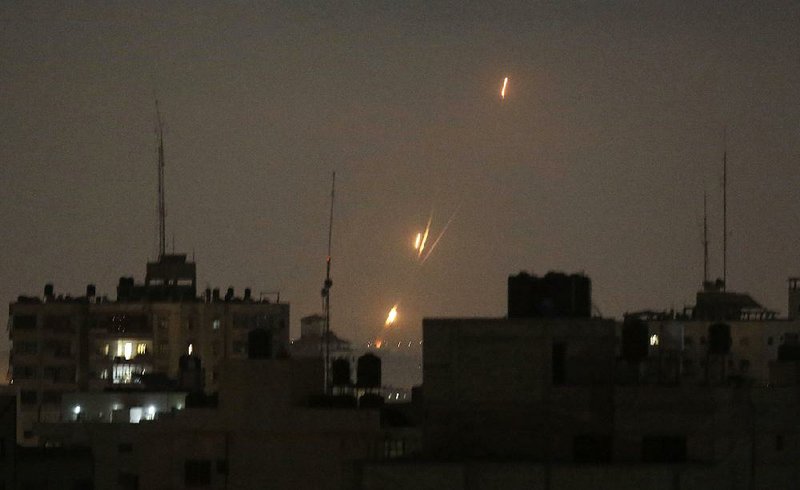GAZA CITY, Gaza Strip -- Gaza's Hamas rulers said Wednesday that they had agreed to a cease-fire with Israel to end the largest flare-up of violence between the two sides since a 2014 war.
Khalil al-Hayya, a senior Hamas official, said Egyptian mediators intervened "after the resistance succeeded in warding off the aggression." He said militant groups in Gaza will commit to the cease-fire as long as Israel does.
But in an interview with Israeli radio, Education Minister Naftali Bennett denied that any deal was reached with Hamas.
"There are no understandings," Bennett said. It is up to the other side to "decide its fate, but we did not reach any agreements with Hamas," he added. "We take action in keeping with Israel's interests."
Still, Cabinet minister Arieh Deri told Israel's Army Radio that he expected calm to be restored.
"If it will be quiet, we will respond with quiet. We've given Hamas a chance to prove that we can return to routine ... If they release the reins, there will be a very painful strike," he said. "There is a good chance that the routine will be restored after the blow the army unleashed on them."
The Israeli military struck dozens of militant sites in Gaza on Tuesday and rocket fire continued toward southern Israeli communities into early Wednesday, setting off air raid sirens in the area.
The military said it hit drone storage facilities, military compounds, and rocket and munition workshops across the Gaza Strip. The overnight Hamas rocket fire reached the city of Netivot for the first time since the 2014 war. A home was struck, but no one was wounded.
Prime Minister Benjamin Netanyahu said Israel gave Palestinian militant groups in Gaza "the strongest blow dealt to them in years" and warned against renewed rocket fire.
"When they try us, they pay immediately. And if they continue to try us, they will pay a lot more," Netanyahu said in Tel Aviv.
But neither Israel nor the Palestinian factions in Gaza went full bore in their attacks, a sign that neither side was interested in escalating hostilities. Militants in Gaza did not fire long-range rockets at Israel's major cities, as they did in 2014, and Israeli airstrikes zeroed in on only unmanned military targets.
With neither side appearing interested in a full-blown conflict, a tense calm appeared to be holding Wednesday as Israeli children went to school in the morning.
There has been widespread speculation in Israel and Gaza of discussions on a wider peace agreement between the two sides, as tensions have soared over the past few months.
"This latest escalation was actually initiated by the Islamic Jihad and not Hamas, partly because there has been progress in reaching an understanding between Hamas and Israel," said Kobi Michael, a senior researcher at Israel's Institute for National Security Studies and former deputy director general at the Ministry of Strategic Affairs.
The border area has been tense in recent weeks as Palestinians have held mass protests aimed at lifting an Israeli-Egyptian blockade imposed after Hamas seized power in 2007.
Israeli fire has killed more than 110 Palestinians, most of them during the Hamas-led protests, which peaked May 14.
Israel and Hamas are bitter enemies and have fought three wars since the Islamic militant group seized control of Gaza in 2007.
The last war, in 2014, was especially devastating, with over 2,000 Palestinians killed, including hundreds of civilians, and widespread damage inflicted on Gaza's infrastructure in 50 days of fighting. Seventy-two people were killed on the Israeli side.
A crippling Israeli-Egyptian blockade, imposed when Hamas took power, has meanwhile brought the local economy to a standstill.
Hamas initially billed its weekly border protests as a call to break through the fence and return to homes that were lost 70 years ago during the war surrounding Israel's establishment.
But the protests appear to be fueled primarily by a desire to ease the blockade. Gaza's unemployment rate is edging toward 50 percent, and the territory suffers from chronic power failures.
Information for this article was contributed by Fares Akram of The Associated Press and by Ruth Eglash and Hazem Balousha of The Washington Post.
A Section on 05/31/2018
